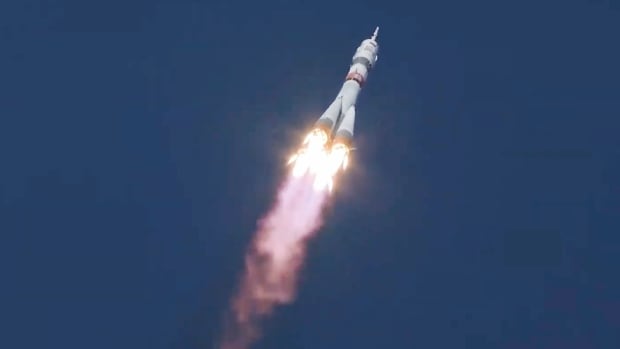China’s successful launch of the core module of its first space station will strengthen international space cooperation, said experts from various countries.
China on Thursday sent into space the core module of its space station Tiangong, meaning Heavenly Palace, kicking off a series of key launch missions that aim to complete the construction of the station by the end of next year.
Michel Tognini, deputy head of the European Astronaut Centre (EAC), who is also a former astronaut of France, said it was a key step for China to launch the core module and the Chinese space station will also open a new foothold for the country’s exploration in space.
“I congratulate China. I congratulate the Chinese space system. This is a very important launch. China will have a permanent in-orbit space station. This will not only allow China to send astronauts into space frequently, but also allow the long stay of astronauts for space operations such as extra-vehicular maintenance, extra-vehicular research, robotic projects and practicing long flights. This is very good. It’s good preparation for building a space station on the moon in the future, or even landing on the moon,” said Tognini.
Keith Cowing, an astrobiologist and former employee of the National Aeronautics and Space Administration (NASA) also spoke highly of China’s space station project.
“It will have multiple modules, it’ll have cargo spacecraft, it’ll have scientific…, it’ll have everything that the international space station has. The fact that it was launched as flawlessly as it was and is operating perfectly, I think bodes well for every other launch that will follow,” said Cowing.
Experts believe the project will bring extensive benefits to all mankind as China has always carried out international exchanges and cooperation with an open attitude.
“Every country hopes to take a step forward in the field of outer space. Therefore, international cooperation in this field should not be only among the great powers. So I think it is totally correct for China’s space station project to be open to all countries,” said Aleksandr Pavlovich Aleksandrov, Russian aerospace expert and former Soviet cosmonaut.
Roberto Battiston, former president of the Italian Space Agency (ASI), noted with such a high-level space station plan, China demonstrates its vital role in the peaceful and rational use of space.
China’s space station is a large-scale project that allows Chinese astronauts to stay in space for a long time. Like the former Soviet Union, the United States, and later the International Space Station with the participation of Europe, Canada and Japan, it has an extremely high level of technology that allows a country to plan its next steps, which is to realize the long stay of humans in space, and to go to the Moon and even to other planets like Mars,” noted Battiston.
“Space is a common asset of mankind. China is playing a vital role in this regard. China and Italy will continue to conduct high-energy cosmic ray detection on the Chinese space station, which will set a good example of conducting global scientific research. This kind of scientific research can only be achieved through the cooperation of scientists from all countries,” he added.
For developing countries, Nyameko Royi, senior engineer at the African Space Innovation Centre (ASIC), lauds China’s contribution to promoting the exploration of space in those nations.
“Previously, it was only Europe and America, and maybe Russia to a certain extent, that had a footprint on the International Space Station, and then also they had just rooms in there. Now with China now going this route, developing nations also might have their own room,” said Royi.
Related

























